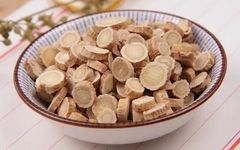To prevent losing it next time
Huang Qi (Astragalus) is a common traditional Chinese medicinal herb, first recorded in the Shen Nong Ben Cao Jing. It has a sweet flavor, a warm nature, and is associated with the Spleen and Lung meridians. It is known for its abilities to tonify Qi, strengthen the exterior, promote diuresis, detoxify, and expel pus.
Modern medical research has also discovered that Huang Qi contains beneficial substances such as Huang Qi polysaccharides, Huang Qi saponins, alkaloids, and trace elements.
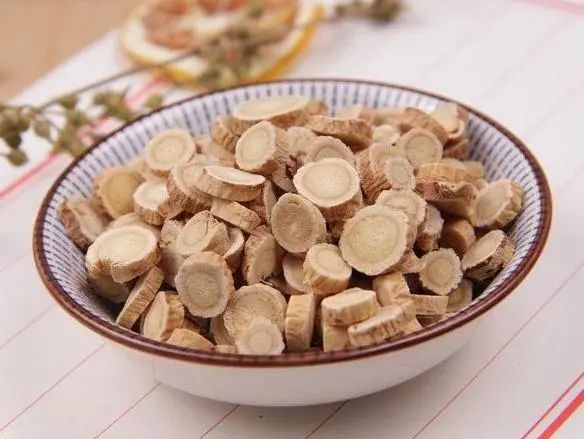
Huang Qi is also known as “Little Ginseng” due to its similar effects to ginseng as a Qi tonic. It is a nutrient-rich ingredient with high medicinal value, representing a typical example of food and medicine being of the same origin.
As the saying goes: “Drinking Huang Qi soup regularly keeps diseases at bay and promotes health,” which reflects the recognition of Huang Qi’s nutritional value.
01What are the main effects of Huang Qi?
——Antibacterial Effects
The mechanism of antibacterial action is multifaceted. On one hand, it directly inhibits or decomposes bacteria and their toxic products, while on the other hand, it enhances the body’s immune defense functions, thereby naturally aiding in bacterial elimination.
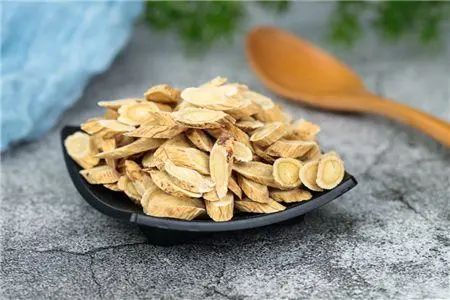
——Improving Spleen Qi Deficiency
If you often feel fatigued and experience shortness of breath, consider drinking Huang Qi water or soup to help alleviate Qi deficiency symptoms.
Individuals with weak Spleen Qi often experience fatigue; in such cases, using Huang Qi, Dang Shen (Codonopsis), and Bai Zhu (White Atractylodes) together in soup can help relieve symptoms to some extent.
——Nourishing Yin and Tonifying the Kidneys
Regularly drinking Huang Qi-infused water can nourish Yin and tonify the kidneys, as Huang Qi is a warming and tonifying food that can improve conditions of Kidney and Yin deficiency.
Thus, if you feel significantly weak, under suitable physical conditions, you can use Huang Qi to make water to warm and tonify the body, enhance organ function, and improve sub-health conditions.
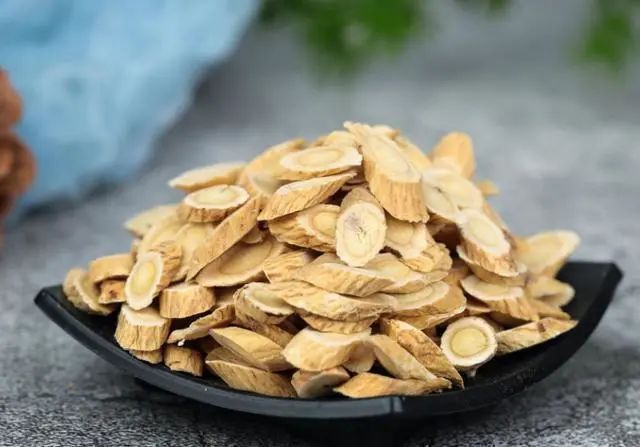
——Improving Heart Function
Huang Qi is rich in nutritional value, and one of its components is beneficial for the heart. Patients with coronary heart disease, hypertension, and hyperlipidemia often exhibit arrhythmias.
Drinking an appropriate amount of Huang Qi-infused water can help alleviate arrhythmias to some extent, while Huang Qi can enhance myocardial contractility, increase blood output, and improve myocardial blood supply.
——Preventing Diabetes
Huang Qi can improve pancreatic function and promote insulin secretion, which plays a role in lowering and regulating blood sugar. Regular consumption of Huang Qi can help prevent complications arising from high blood sugar and diabetes.
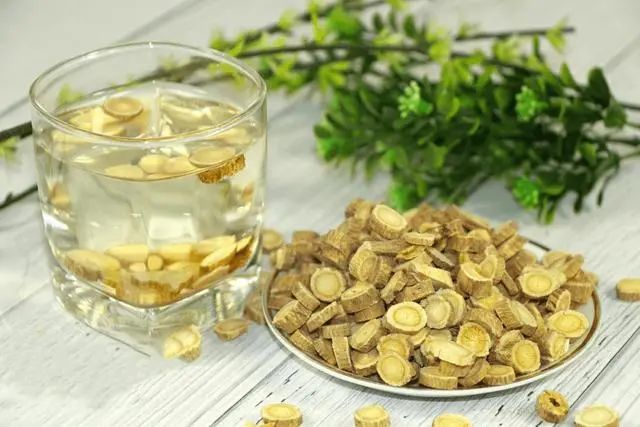
02Astragalus: The Top Qi-Boosting Herb – TCM Expert Shares Four Effective Combinations
Huang Qi with Hawthorn
Use 20 grams of Huang Qi and 10 grams of Hawthorn. Rinse with cold boiled water, then place in a thermos and pour in 400 milliliters of boiling water. It can be consumed after half an hour. It can be steeped multiple times, but two steepings are optimal.
Combining Huang Qi with Hawthorn enhances the effects of invigorating Qi and promoting blood circulation, especially suitable for patients with Qi deficiency-related heart disease, hypertension, hyperlipidemia, and hyperglycemia. To avoid gastric stones from consuming raw Hawthorn on an empty stomach, it is recommended to drink after meals.
Huang Qi with Dan Shen (Salvia miltiorrhiza)
In today’s high-pressure work and life, many people often feel chest tightness and shortness of breath. Drinking Huang Qi and Dan Shen soup can alleviate these symptoms and inhibit excessive proliferation of fibroblasts.
Additionally, it helps clear waste from blood vessel walls, maintains vascular patency, and prevents thrombosis, making it suitable for overweight individuals and the elderly.
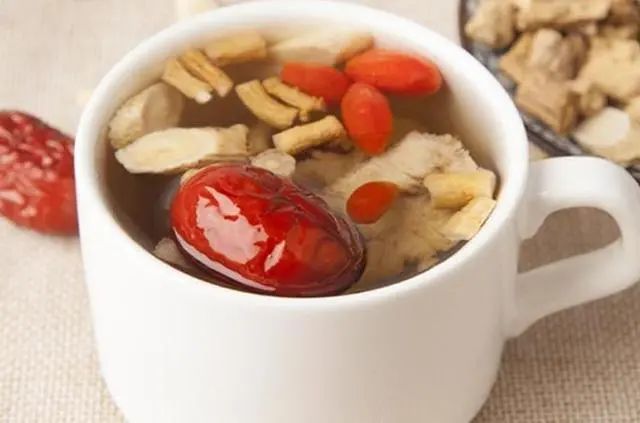
Huang Qi with Goji Berries
Goji berries are known for their health benefits, but many people only know that drinking them is beneficial without understanding their specific advantages.
Goji berries are excellent for nourishing the liver and improving eyesight, while Huang Qi is a Qi tonic. Together, they enhance each other’s effects, and you will find that after a period of consistent use, your liver and kidneys feel better, and your complexion improves.
Huang Qi with Honeysuckle
Huang Qi has over 2000 years of medicinal history and is regarded as the best herb for tonifying Qi and the Spleen. It has significant Qi-boosting effects, especially suitable for the elderly, those with weak constitutions, and chronic patients, to enhance immunity and disease resistance.
Honeysuckle is one of the most commonly used herbs for clearing heat and detoxifying. It has a sweet, cold nature and is aromatic, clearing heat without harming the stomach. Many individuals with a tendency to develop heat can benefit from drinking Huang Qi and Honeysuckle tea, which can help dispel exterior pathogens and eliminate dampness.
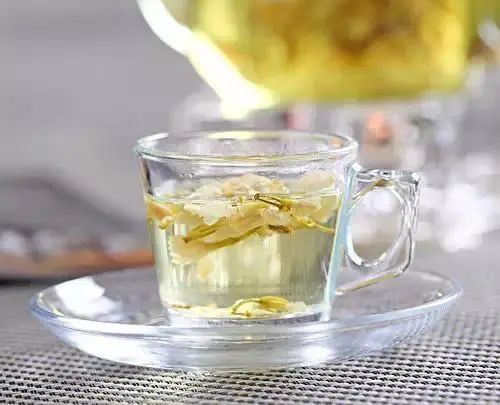
03Understanding the Contraindications of Huang Qi
Individuals with Yin Deficiency and Damp-Heat
It is not recommended for these individuals to consume Huang Qi. They often experience symptoms such as heat in the palms and soles, bitter mouth, dry mouth, and insomnia with vivid dreams. Consuming Huang Qi may exacerbate their symptoms.
Individuals with Indigestion
Those with indigestion should be treated based on their symptoms, focusing on strengthening the Spleen and stomach, soothing the liver, and promoting digestion. Huang Qi can tonify the Spleen and Qi, but may worsen bloating and indigestion, so it should be avoided.
Women During Special Periods
Women should avoid consuming Huang Qi water during menstruation to prevent menstrual irregularities. During pregnancy, it is advisable to use caution with medications to avoid affecting the fetus and prevent miscarriage.
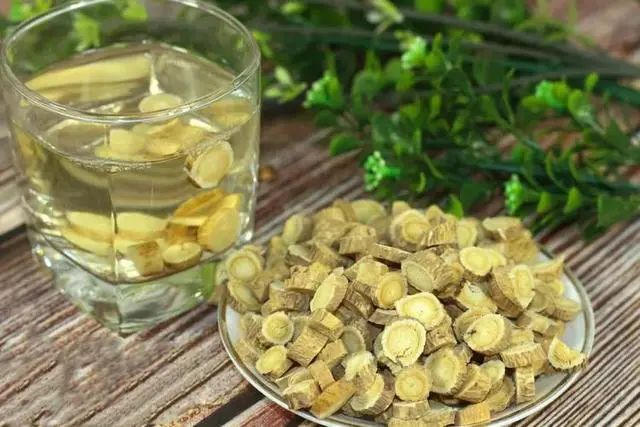
Warm Reminder:

